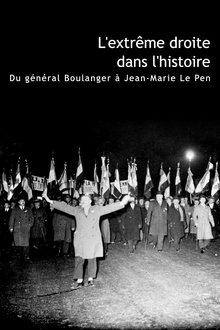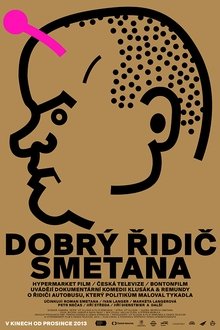A KISS FOR GABRIELA tells the story of a remarkable woman named Gabriela Leite. An activist for sex workers’ rights for over 30 years, Gabriela was the first sex worker to run for Brazilian Congress. The documentary presents an intimate portrait of her 2010 campaign when she faced 822 opponents and challenged a male dominated political system. Combining an observational style with unrestricted access, it explores what it means to be a prostitute, to be a wife, and most importantly, what it means for a woman representing one of the most stigmatized populations in the world to run for office. Gabriela’s charisma and amazing history of activism engages audiences and encourages them to reflect critically on laws and policies that restrict the rights and possibilities of women like Gabriela globally. For women like Gabriela who make history and challenge stereotypes with their campaigns, it is not whether they win or lose, or even how they play. It’s that they’re in the game at all.
Related Movies

Sexwork & Me (2012)
21st century legal prostitution through the frank stories of Amsterdam red-light district sex workers at a time when tighter regulation threatens their livelihood.

It's All in Lebanon (2012)
Wissam Charaf traces the recent history and identity of Lebanon through its political campaigns, PR imagery and pop videos.

Postcard (Or, from afar, you are a mirage) (2024)
"The palm trees on the reverse are a delusion; so is the pink sand". This line, taken from a poem by Margaret Atwood, lights the path traced in "Postcard". As the years go by, landscapes transform, take on new meanings, and hold onto joys that will never be regained. The sea and the beach, once stages of happy summers, romances, and encounters, will turn into concentration camps or centers of detention and torture. This occurs across different times and places. In this piece, I embark on a journey through some of my works that explore the relationship between testimony, spaces, and time, engaging in dialogue with the beautiful film directed by Alejandro Segovia in 1972.
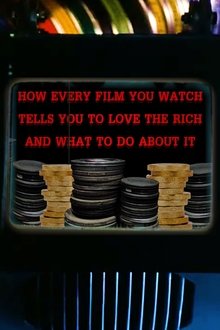
How Every Film You Watch Tells You To Love The Rich and What To Do About It (2019)
"How Every Film You Watch Tells You To Love The Rich and What To Do About It" explores the representations of wealth in cinema. It looks into how most beloved characters are subtly more well-off than they should be, how criticisms of the system are crushed, how the rich have become the average in the world of the cinema. And it shows how these stories distort the view of the real world, and are used against you by politicians.

East-West Passage (2010)
In the summer of 1989 tens of thousands of tourists from communist East Germany came to Hungary. They were deeply disillusioned because they felt they had no future in East Germany. There was no freedom, no choice in the shops, salaries were low and they could not travel except to Eastern Europe. They wanted to go to a prosperous and free West Germany but they could not get passports, so they hoped that by travelling through Hungary, the least suppressed country of the Soviet Block, they could cross the Iron Curtain into Austria and then travel on into West Germany. For them the Hungary of twenty years ago was the new east-west passage. Written by Czes
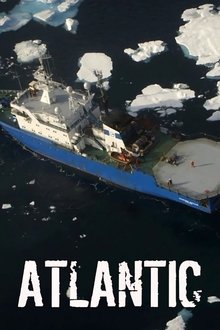
Atlantic (2016)
Documentary about the two big resources in the North Atlantic, fish and oil, and the impact of their exploitation on the environment in various countries on both sides of the Atlantic.
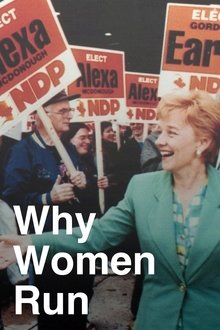
Why Women Run (1999)
This documentary offers a glimpse into the 1997 federal election in the Halifax electoral district. Two strong female politicians, Liberal candidate Mary Clancy and NDP party leader Alexa McDonough, are caught in a tight competition in one of the most contested races in the country. Director Meredith Ralston follows the two women around the campaign trail for weeks, getting inside an election that was often described as “nasty.” Both larger than life and hungry to win, in quieter moments Clancy and McDonough reveal the strains and contradictions of their chosen careers. Why Women Run highlights the accomplishments of women in politics and the problems many women face participating in the political process.
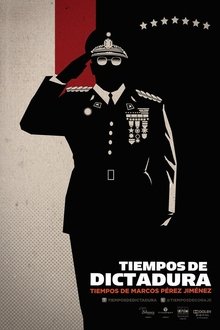
Tiempos de Dictadura, Tiempos de Marcos Pérez Jiménez (2012)
Told through animations, testimonials and pictures, a controversial and dramatic past Venezuelan time.

AstraZeneca: A Vaccine for the World? (2022)
BBC medical editor Fergus Walsh examines the extraordinary ambition behind the Oxford-AstraZeneca Covid jab. Intended as a vaccine for the world, did politics get in its way?
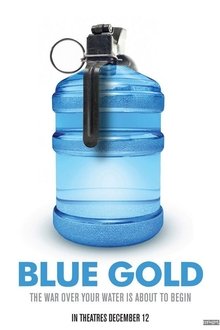
Blue Gold: World Water Wars (2008)
Wars of the future will be fought over water as they are over oil today, as the source of human survival enters the global marketplace and political arena. Corporate giants, private investors, and corrupt governments vie for control of our dwindling supply, prompting protests, lawsuits, and revolutions from citizens fighting for the right to survive.
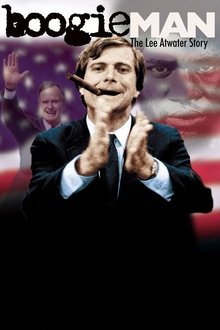
Boogie Man: The Lee Atwater Story (2008)
Boogie Man is a comprehensive look at political strategist, racist, and former Republican National Convention Committee chairman, Lee Atwater, who reinvigorated the Republican Party’s Southern Strategy to increase political support among white voters in the South by appealing to racism against African Americans. He mentored Karl Rove and George W. Bush and played a key role in the elections of Reagan and George H.W. Bush.

Rich Hall's Presidential Grudge Match (2016)
An examination of the sordid machinations involved in becoming president of the United States. Rich Hall looks back at some of the dirtiest and nastiest presidential campaigns of the past, proving that the 2016 race to the White House is not the first time the contest has got personal.
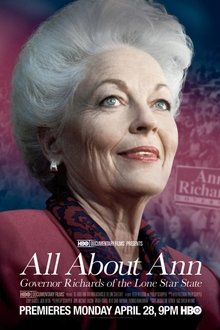
All About Ann: Governor Richards of the Lone Star State (2014)
All About Ann celebrates the achievements of larger-than-life Ann Richards, who became the first elected female governor of Texas. Her cool demeanor, acid wit, and passion for social inclusivity made her one of the most powerful and progressive governors in U.S. history, a liberal democrat intent on building “the new Texas.” But, when the 1994 election begins, Richards is faced with her toughest challenge yet, as an increasingly conservative majority turn towards a new, pro-business candidate: George W. Bush.

You've Been Trumped Too (2016)
A timely film exploring the confrontation between a feisty 92-year-old Scottish widow and her family and a billionaire trying to become the most powerful man in the world.

In the Rumbling Belly of Motherland (2021)
As the U.S. planned to withdraw troops from Afghanistan in September 2021, Canadian-Afghan filmmaker and journalist Brishkay Ahmed was filming IN THE RUMBLING BELLY OF MOTHERLAND. Revealing the ongoing dangers for women reporters, and the extraordinary risks they take, this brave film provides an in-depth look into Zan TV, Kabul’s female-led news agency. A professional journalist herself, Ahmed documents both the harrowing and inspiring work of young, female journalists over the course of the two-year lead up to the Taliban takeover of Afghanistan. Following parallel news stories as they unfold – two sets of national elections as well as ongoing U.S.-Taliban peace talks – the film reveals the daily hurdles Afghan female reporters and media staff face, underscoring the existential current events that threaten both Zan TV as a media outlet and the livelihoods of the women at its heart.

July '64 (2004)
A historic three-day race riot erupted in two African American neighborhoods in the northern, mid-sized city of Rochester, New York. On the night of July 24, 1964, frustration and resentment brought on by institutional racism, overcrowding, lack of job opportunity and police dog attacks exploded in racial violence that brought Rochester to its knees. Combines historic archival footage, news reports, and interviews with witnesses and participants to dig deeply into the causes and effects of the historic disturbance.

Chavismo: The Plague of the 21st Century (2018)
An analysis of the causes, social, political, and economic that caused the rise of Hugo Chávez as president of Venezuela; his abuse of power and the response of civil society, including the student movement; his political fall as well as the secrecy that surrounded his illness and the succession of Nicolás Maduro.

After Coal: Welsh and Appalachian Mining Communities (2016)
After Coal profiles inspiring individuals who are building a new future in the coalfields of eastern Kentucky and South Wales. Meet ex-miners using theater to rebuild community infrastructure, women transforming a former coal board office into an education hub, and young people striving to stay in their home communities. The stories of coalfield residents who must abandon traditional livelihoods illustrate the front lines of the transition away from fossil fuels.
